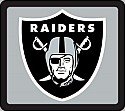There is a lot of Civil War research and materials regarding James Longstreet and Robert E. Lee. I have always found it interesting to read about their relationship and I am always looking for the source that really describes their friendship in detail. That source may not exist and during the war Longstreet was careful to avoid being critical of Lee's generalship. For those that don't know, Lee died in 1870 just five years after the war ended and this opened up the debate about his leadership abilities. General Jubal Early and other Confederate leaders helped make Lee into the perfect general whose only flaw was those individuals who failed him in battle. In Civil War literature it was impossible to criticize Lee or write materials that properly assesses his generalship. General James Longstreet was one of the individuals who received a lot of the blame for Lee's failure at Gettysburg. Early and others led this attack on Longstreet's generalship and for the most part avoided any attack on Robert E. Lee. Therefore, it became taboo and downright criminal for a historian or former Confederate to question Lee's decisions on the battlefield. When Longstreet began publishing materials he rated Lee behind Grant, Lincoln and even Confederate General Joseph E. Johnston. This put him at odds with Early and other writers who tried to make Lee match his "marble man" nickname. But in some of Longstreets writings, he finds a way to talk about Lee in a unbiased way that brings Lee's strengths and weakness to the forefront.
While writing for The Century Magazine Longstreet produced an article which portrayed Lee as many historians view him today. Written during the height of the Early & Longstreet quarrels, this quote is important because Longstreet avoids criticism of Lee in response to an Early attack. Moreover, the quote by Longstreet paints a portrait of Lee's generalship and abilities that is accurate by todays standards. Here is the quote:
"General Lee was an unusually handsome man, even in his advanced life. He seemed fresh from West Point, so trim was his figure and so elastic his step. Out of battle he was as gently as a woman, but when the clash of arms came he loved fight, and urged his battle with wonderful determination. As a usual thing he was remarkably well-balanced---always so, except on one or two occasions of severe trial when he failed to maintain his exact equipoise. Lee's orders were always well considered and well chosen. He depended almost too much on his officers for their execution.....Without a doubt the greatest man of rebellion times, the one matchless among forty millions for the peculiar difficulties of the period was Abraham Lincoln."
Even for the casual reader it is obvious that such a quote put Longstreet at odds with or didn't help any cause against Lee's supporters. This is not a criticism of James Longstreet but for a former Confederate to say that Abraham Lincoln was the true genus of the war gave Longstreet's detractors more ammunition to use against him. I doubt that Longstreet felt so strongly about Lincoln during the war and his opinion of "Honest Abe" needs to be taken in the context of Longstreets Republican identification which sought to lionize Lincoln in the same manner that Confederates tried to immortalize Lee. However, I truly agree with Longstreet about Lincoln and I want it to be known that I agree with "Old Pete's" assessment of Lee as a man. His statement about Lee staying under control except for the occasions where "he failed to maintain his exact equipoise" brings images of Gettysburg to mind. I wonder if Longstreet was talking about July 1-3 1863 when General Lee pushed his army too far. General Longstreet felt that Lee was a good man but he pointed out that Lee did make mistakes. In Longstreet's eyes, Lee was not an immortal god, above reproach and free of error but rather a man who had flaws. Perhaps what Longstreet saw and what Early didn't see is that Lee was a true American hero, who did great things but had his own demons and suffered setbacks. After all, what makes a hero is the ability to bounce back, to stand the test of time and to see things to the end despite the possibility of failure. Such a person was Robert E. Lee.






No comments:
Post a Comment